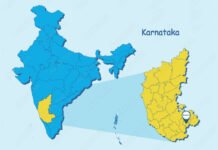The fifth round of bilateral trade negotiations between India and the United States concluded in Washington this week without a breakthrough, as both sides held firm to their respective national interests. The meetings, held from July 14 to 17, were part of a continuing effort to forge a comprehensive trade agreement, but key sticking points remain unresolved.
A senior official from India’s Commerce Department, who led the delegation, reiterated New Delhi’s cautious stance on issues like digital trade, market access, and intellectual property rights. “India is committed to safeguarding its domestic industries, ensuring data sovereignty, and maintaining flexibility in e-commerce regulations,” the official said during the closing session.
From the U.S. side, the Office of the United States Trade Representative (USTR) pressed for stronger commitments on tariff reductions, removal of non-tariff barriers, and enhanced protections for American firms operating in India. However, Indian negotiators emphasized the need for a phased, development-oriented approach that acknowledges India’s role as a growing but still emerging economy.
Despite the impasse, both sides acknowledged “constructive dialogue” and “a willingness to continue engagement.” The discussions also touched on areas of convergence, including supply chain cooperation, sustainable manufacturing, and green technology trade.
Experts say that while the deadlock is disappointing, it is not unexpected. “India has become more assertive in global trade forums. It no longer signs deals that compromise core domestic priorities,” said Dr. Anika Mehra, an international trade analyst based in New Delhi. “The U.S. wants speed, but India wants sovereignty.”
The trade negotiations come at a time of increasing strategic alignment between the two countries in the Indo-Pacific, but this momentum has not yet translated into a formal economic pact. The absence of a bilateral trade deal has been a longstanding gap in India-US relations, even as security and technology cooperation deepen.
Washington had hoped to advance talks ahead of the U.S. general elections later this year. However, Indian officials appear unfazed by political timelines, focusing instead on long-term alignment. The next round of trade discussions is expected later in the year, possibly after the U.S. election results are in.
While no formal agreement was signed, both sides agreed to maintain ongoing working group-level discussions and to revisit the key points of contention in future rounds. For now, India and the United States remain important trade partners navigating a complex road toward economic convergence.

























